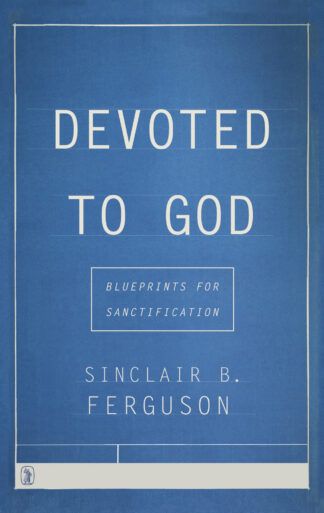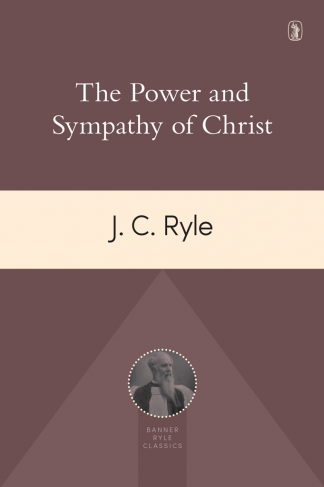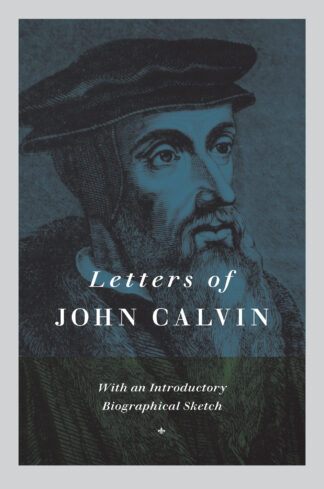Memory and Prospect
‘We rejoice in hope of the glory of God’
— Romans 5.2b
The cycle that is called a year is an ordinance of God. ‘Let there be lights in the firmament of heaven to divide the day from the night; and let them be for signs, and for seasons, and for days, and years’ (Gen. 1.14). So there are the ordinances of day and night, seasons and years, seedtime and harvest. God’s covenant is with day and night and with the ordinances of heaven and earth (Jer. 33.25). And so we read again: ‘While the earth remaineth, seedtime and harvest, and cold and heat, and summer and winter, and day and night shall not cease’ (Gen. 8.22).
The ordinance invested with peculiar religious significance is the week, the seven-day period. The reason is that it is patterned after God’s own week. In six days he made heaven and earth and on the seventh he rested. Man’s occupation must ever be patterned after the divine example — six days of labour and one day of holy rest, the weekly Sabbath, because God blessed the Sabbath day and sanctified it.
We have come to the end of one year and are at the beginning of another.
This event should remind us of the past and of the future. The past is filled with memories, the thought of the future should be that of prospect. Memory is inevitably and appropriately for the past, prospect for the future. Now what is central in our thought of the past? What is central in our thought for the future? What is our prospect?
If we are Christian, what is paramount in our thought of the past is the past of redemptive history, and in our thought of the future it is that of redemptive hope. Without both of these Christian profession is mockery. As we think of the past what looms on our horizon, if we are Christian, is the astounding event without precedent, without parallel, and without repetition, and it is that ‘when the fulness of the time came, God sent forth his Son’ (Gal. 4.4). The Son of God came, tabernacled among us, died on the accursed tree, rose from the dead, and ascended to heaven. These are the pivotal events of redemptive history. Are they pivotal in our thought of the past?
It is with the present and future that the text deals. It is descriptive of the present when it says ‘rejoicing’. This is the present attitude of mind and it is one of exultation. Too often our attitude is one of foreboding, anxious, fretful care, in a word, that of worry. ‘Be careful for nothing’.
Why? Because the future is one of hope. I find sometimes with elderly people that their whole interest is in the past. They cannot think of the future because they have no prospect, no hope. It is one of the saddest experiences to contemplate a Christless grave and they do not want to hear or think of death. It is for them encompassed with nothing but darkness and dread.
Now what is the hope here spoken of? It is called ‘the glory of God’.
This implies the glory that will be the lot of the people of God, their glorification with Christ. ‘When Christ, who is our life, shall be manifested, then shall ye also be manifested with him in glory’ (Col. 3.4). But something else is in view here. It is the resplendent manifestation of the glory of God. The hope of the people of God is the full manifestation and vindication of the glory of God. When God will judge the world in righteousness and the people with his truth, then all things will be adjudicated with perfect equity and he will vindicate all his ways and works. God alone will be exalted and the mouths of his enemies will be forever shut. ‘Every knee shall bow, of things in heaven, and things in earth, and things under the earth; and that every tongue should confess that Jesus Christ is Lord, to the glory of God the Father’ (Phil. 2.10, 11).
Is this our hope? Is the glory of God our paramount interest? And does our prospect for the future find its focus in the manifestation of the glory of God?
This article was first published in the January 1978 edition of the Banner of Truth magazine.
Must-Reads for the New Year

Description
‘We rejoice in hope of the glory of God’ — Romans 5.2b The cycle that is called a year is an ordinance of God. ‘Let there be lights in the firmament of heaven to divide the day from the night; and let them be for signs, and for seasons, and for days, and years’ (Gen. […]

Description
‘We rejoice in hope of the glory of God’ — Romans 5.2b The cycle that is called a year is an ordinance of God. ‘Let there be lights in the firmament of heaven to divide the day from the night; and let them be for signs, and for seasons, and for days, and years’ (Gen. […]

Description
‘We rejoice in hope of the glory of God’ — Romans 5.2b The cycle that is called a year is an ordinance of God. ‘Let there be lights in the firmament of heaven to divide the day from the night; and let them be for signs, and for seasons, and for days, and years’ (Gen. […]
Latest Articles
On the Trail of the Covenanters February 12, 2026
The first two episodes of The Covenanter Story are now available. In an article that first appeared in the February edition of the Banner magazine, Joshua Kellard relates why the witness of the Scottish Covenanters is worthy of the earnest attention of evangelical Christians today. In late November of last year, on the hills above […]
A Martyr’s Last Letter to His Wife February 11, 2026
In the first video of The Covenanter Story, which releases tomorrow, we tell the story of James Guthrie, the first great martyr of the Covenant. On June 1, the day he was executed for high treason, he coursed the following farewell letter to his wife: “My heart,— Being within a few hours to lay down […]
